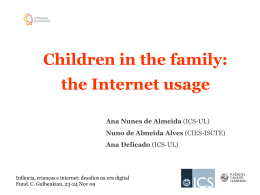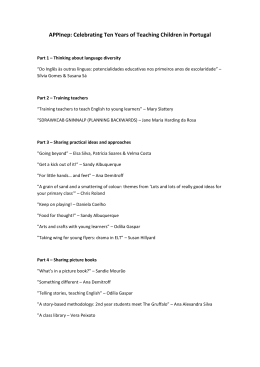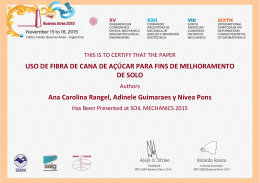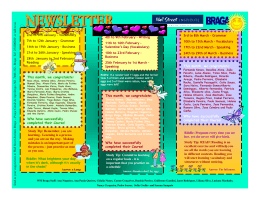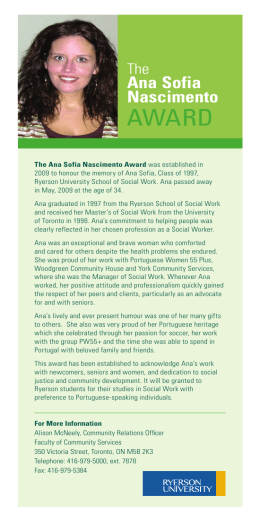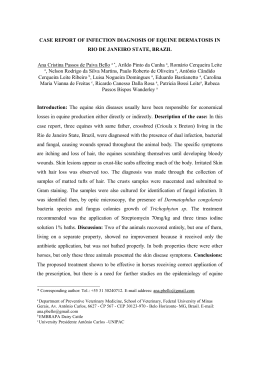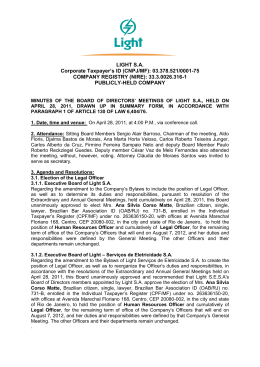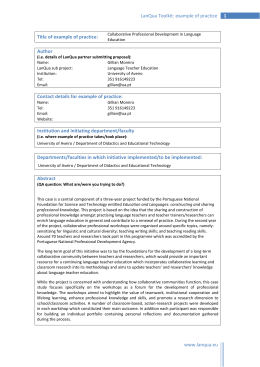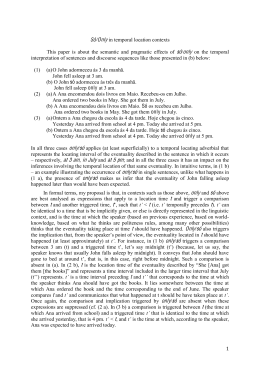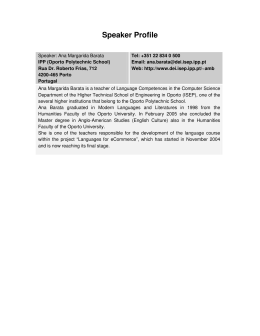Portuguese Language Guide Script For those of you keen to have a written version on the podcast, here is the script below: Scott: Um, com liceca (mispronounced badly) what is the parade for? Ana: You mean com licenca – for excuse me - It is the Festa de Santo Antonio Scott: Festival of….? Ana: St Anthony – he is the Patron Saint of Padua and Portugal Scott: Wow! It seems like a pretty big deal Ana: Yes, each June all the local clubs and groups march through the Aveenida da Liberdade with their banners and flags to celebrate - it is a great party! Scott: I‟m Scott, looks like we might be wedged here together for a while – I don‟t suppose you could help me with a few Portuguese phrases? Ana: Sure, I‟m Ana – what would you like to know? Scott: Well, how about we start with the basics – hello – that is ola – right? Ana: That‟s right – ola – and good morning is bom dia Scott: Bom dia Ana: Good Afternoon is boa tarde and Good Night is boa noite Scott: Boa tarde, boa noite. Goodbye is adeus – right Ana: Yes, that‟s right – and you might here „ate logo‟ – which is „see you later‟ Scott: Ate logo! Ana: You know, your accent is pretty good. Scott: (Smiling) Ah, obrigado… that is thank you isn‟t it? Ana: Very good – you hardly need me at all! Scott: (laughing) let‟s not get too excited! Now back to basics – what is yes & no? Ana: This is sim and nao Scott: Sim, nao. Please is per favor? Ana: Sim! Portuguese people are very formal and polite, so make sure you use „per favor‟ whenever you can. Scott: ok, that is good to know. What about “I don‟t understand” Ana: This is nao compreendo Scott: Nao compreendo. Now, I know we‟ve already introduced ourselves, but how do I ask a persons name? Ana: You say Como se chama? Scott: Como se chama? What about my name is? Ana: You say “Chamo me Scott”. You should also know that Portuguese people are quite formal and will generally use Senhor or Sehora until a person invites them to be informal, for instance my name is Ana Almeida so you should call me Senhora Almeida until I invite you to call me Ana – which of course you can use! Scott: Ok, that is good to know. Chamo me Scott. Those flags and costumes are incredible – look at that one! Ana: They are amazing, yes – but Scott, you should not point with your finger – it is considered rude. Also, if you want to beckon someone do it this way – with your palm facing down and your hand and fingers waving. Scott: (laughing) Ok –but it‟s kinda hard not to point at a parade though! Ana: (Smiling) Try using your thumb! Scott: (smiling) Ah, of course! How do I say „how much is it?‟ Ana: Quanto custa? Scott: Quanto custa? What about „too expensive‟ Ana: E caro Scott: E caro. What about „where is‟ and „which way to‟ Ana: You say „Onde é‟ or „onde está‟ and „Qual é o caminho para‟ Scott: „Onde é‟ or „onde está‟ and „qual é o caminho para‟. I know a little French and Spanish and I‟m finding that the written form of Portuguese is similar. Ana: Yes, the written forms are not dissimilar but the spoken are quite different. Scott: Ok, well I know how to say this in Spanish and French – so how do I say „have you a room‟ and „may I see it‟ in Portuguese? Ana: you say „tem algum quarto‟ and „posso ver?‟ Scott: „tem algum quarto‟ and „posso ver?‟ What about some transport – how do I say bus, train, boat and taxi? Ana: Bus is autocarro, train is comboio Scott: autocarro and comboio Ana Boat is barco and taxi is taxi also ticket is bilhete Scott: barco, taxi and bilhete Ana: Very good! Scott: Obrigado Senhora Almeida! Hey, what is that girl selling – they smell amazing! Ana: ah, they are pasteis da nata which are very small, rich custard tarts – a Portuguese delicacy! Scott: Portuguese Tarts… the real deal…fantastic… I‟ll get a few for us!! How do I say four? Ana: Quatro! Scott: Quatro per favor! Obrigado. Here you go, two for you… Ana: You mean dois Scott: Dois, ok.. how do I count to ten? Ana: um dois tres quatro cinco seis sete oito nove dez Scott: oh, hang on… slow down… how do I say „please say that slowly‟ Scott: You say „por favor diga isso devagar‟. Now, numbers are - um dois tres quatro Scott: Um dois tres quatro Ana: cinco seis sete Scott: cinco seis sete Ana: oito nove dez Scott: oito nove dez Ana: Very good! Scott: Ana, you have been very patient with me – can I trouble you for just a few more phrases? Ana: I‟m enjoying the parade, the pasteis and the company so you may indeed trouble me for a few more! Scott: Ok, how do I say police, hospital and doctor Ana: Hopefully you will not need to use these but police is polícia Scott: polícia Ana: Hospital is hospital and doctor is médico Scott: hospital and médico. Now, finally can you tell me how to say „I like this‟ as in “I like this pasteis!” Ana: You say „eu gosto disto‟ Scott eu gosto disto and what about „I don‟t like this‟ Ana: this is „eu não gosto disto‟. Scott: Ana, you have been very kind, thank you so much for your help – how about I get us a few more of those pasteis! Ana: Obrigado Scott!
Baixar
